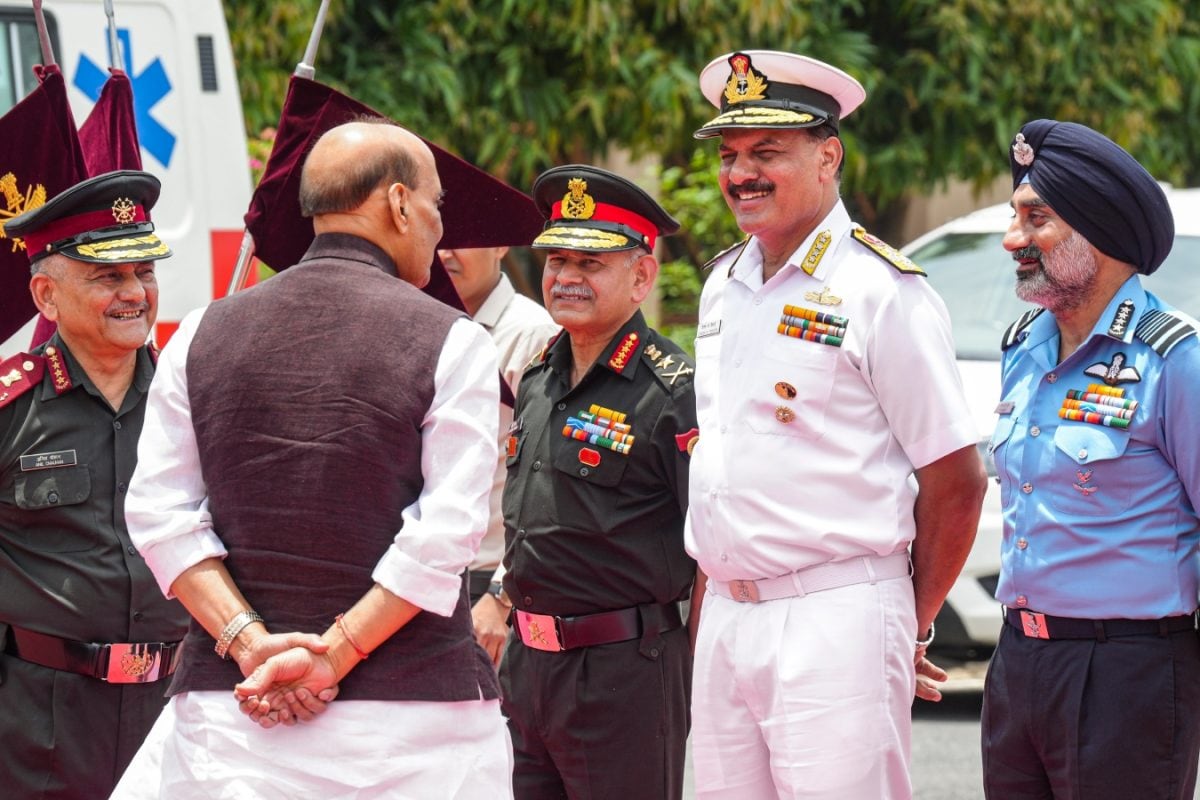

The Indian Navy is adapting to a new reality where terrorism is no longer viewed as a mere law and order problem, but as an act of war, requiring a comprehensive and assertive response. This shift in approach was recently highlighted by Navy Chief Admiral Dinesh K. Tripathi, who emphasized the importance of this evolved perspective in shaping the Navy's operational outlook.
The context for this shift is the evolving global security landscape, marked by increasing complexity and rapid changes. Admiral Tripathi pointed to the shifting geopolitical and geostrategic environment, along with ongoing conflicts worldwide, as factors that have significantly increased the frequency, diversity, and complexity of the Navy's tasks.
This new approach was evident in the Navy's response to the April 22 Pahalgam terror attack. Within 96 hours of the attack, Indian naval units conducted successful missile and torpedo firings along both the western and eastern seaboards, demonstrating a swift and decisive response. This rapid and measured action showcased India's strategic reach and maritime dominance, sending a clear message of resolve. According to Admiral Tripathi, this strong response compelled the adversary to plead for a ceasefire "just in time."
Furthermore, during Operation Sindoor, Indian naval ships, submarines, and aircraft were operationally ready and deployed, projecting strength and preparedness to deter any "potential actions from our western adversary" in the maritime domain. This forward deployment served as a powerful deterrent, reinforcing India's commitment to protecting its interests and maintaining regional stability.
Defense Minister Rajnath Singh has also strongly echoed this sentiment, asserting that Pakistan's "dangerous game" of terrorism is over. He emphasized that Prime Minister Modi has made it clear that another terrorist act on Indian soil will be treated as an "act of war." Singh highlighted Operation Sindoor as India's "frontal assault" against terrorism, warning that any further "evil or unethical" actions by Pakistan would face the full force of the Indian Navy's "firepower and ire." He further added that India would not hesitate to use every method to root out the menace of terrorism, "even methods that Pakistan cannot think of."
This firm stance reflects a significant change in India's strategic thinking. The country is now prepared to proactively counter terrorism with all available resources, including military force. This approach aims to not only deter future attacks but also to hold accountable those who sponsor and support terrorism.
The Navy's enhanced focus extends beyond traditional military operations. Admiral Tripathi has emphasized the importance of embracing new technologies and strategies to address evolving threats. This includes strengthening cyber capabilities, enhancing data dominance, and developing advanced strategic deterrence mechanisms.
The Indian Navy is not only the sentinel of the Indian Ocean but also a strategic force that strengthens India's presence in the region, signaling that India is moving towards becoming a global power.